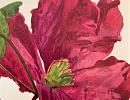Contact Seller
Greystones Fine Interiors
Tel07425 298868Please quote Antiques Atlas.

 Beryl Cook limited edition lithograph
Beryl Cook limited edition lithograph
 Beryl Cook limited edition lithograph
Beryl Cook limited edition lithograph
 1970s Lithograph of a woman by Reginald James Lloyd
1970s Lithograph of a woman by Reginald James Lloyd
 Arts and Crafts oak framed lithograph Angelo Jank
Arts and Crafts oak framed lithograph Angelo Jank
 Tony Mafia - Casares - Mid Century
Tony Mafia - Casares - Mid Century
 Tony Mafia - Mid Century
Tony Mafia - Mid Century
 Rare 1840 lithograph interior of Lyme Regis church
Rare 1840 lithograph interior of Lyme Regis church
 Billy Devorss 1940s Pin Up American Pin Up Large
Billy Devorss 1940s Pin Up American Pin Up Large
 BRADSHAW CRANDELL 1936 original Lithograph Nudes
BRADSHAW CRANDELL 1936 original Lithograph Nudes
 H.HINTERMEISTER 'SAFETY FIRST' American Lithograph
H.HINTERMEISTER 'SAFETY FIRST' American Lithograph
 WALT OTTO original 1950's Pin Up Pretty lady LITHO
WALT OTTO original 1950's Pin Up Pretty lady LITHO
 PAUL IRIBE 1931 original French Lithograph Good
PAUL IRIBE 1931 original French Lithograph Good
Non UK callers :
+44 7425 298868
Miro 'Composition With Stars' Lithographs 1964

Beautiful, Surrealist, Composition with Stars Stone Lithograph Pair.
Miro interpreted 'Stars" not just as key elements in the Sky but more importantly as the vehicle that take us to the dream world. The starry night appearing most striking during sunrise or sunset moments, accompanied by the dynamic colours (darkness conflicting with light) common in these moments.
Original Lithographs in colour on Arches paper, edited by the Mouritot workshop in 1964, Paris. Signed. These artworks have the most wonderful textures and intense and vibrant colours. They are tremendously and effortlessly sophisticated. Beautiful.
Framed dimensions:
Larger 'Two Stars' Lithograph: unframed work is 19cm wide by 25cm tall, Framed work is 44cm wide by 50cm tall.
Smaller 'Single Star' Lithograph: unframed work is 11cm wide by 20cm tall. Framed work is 44cm wide by 50cm tall.
About Framing:
This fine pair has been remounted in bespoke handmade and hand-finished wooden frames with a carved and confidently proportioned mount. The glass is museum quality with low reflection, amazing colour vibrancy/intensity and high U.V. absorption to protect the works. The archival/museum quality materials and expert techniques used will ensure your artwork is protected for many, many years to come.
About Lithographs:
A printing process based on the fact that grease and water don’t mix. The image is applied to a grained surface (traditionally stone but now usually aluminium) using a greasy medium: such as a special greasy ink – called tusche, crayon, pencils, lacquer, or synthetic materials. Photochemical or transfer processes can also be used. A solution of gum arabic and nitric acid is then applied over the surface, producing water-receptive non-printing areas and grease-receptive image areas. The printing surface is kept wet, so that a roller charged with oil-based ink can be rolled over the surface, and ink will only stick to the grease-receptive image area. Paper is then placed against the surface and the plate is run through a press.
Lithography was invented in the late eighteenth century, initially using Bavarian limestone as the printing surface. Its invention made it possible to print a much wider range of marks and areas of tone than possible with earlier printmaking relief or intaglio methods. It also made colour printing easier: areas of different colours can be applied to separate stones and overprinted onto the same sheet.
Offset lithography involves printing the image onto an intermediate surface before the final sheet. The process is ‘offset’ because the plate does not come in direct contact with the paper, which preserves the quality of the plate. With offset lithography, the image is reversed twice, and appears on the final sheet the same way round as on the stone or plate.
About Joan Miró:
Joan Miró Ferra was born April 20, 1893, in Barcelona. At the age of 14, he went to business school in Barcelona and also attended La Lonja, the academy of fine arts, in the same city. Upon completing three years of art studies, he took a position as a clerk. After suffering a nervous breakdown, he abandoned business and resumed his art studies, attending Francesc Galí’s Escola d’Art in Barcelona from 1912 to 1915. In 1917, he met Francis Picabia and the following year, the dealer José Dalmau gave him his first solo show at his gallery in Barcellona.
In 1920, Miró made his first trip to Paris, where he met Pablo Picasso. From this time, Miró divided his time between Paris and Montroig, Spain. In Paris, he associated with the poets Max Jacob, Pierre Reverdy, and Tristan Tzara and participated in Dada activities. Dalmau organized Miró’s first solo show in Paris, at the Galerie la Licorne in 1921. His work was included in the Salon d’Automne of 1923. In 1924, Miró joined the Surrealist group.
SellerGreystones Fine Interiors
View all stock from
Greystones Fine Interiors

 Private dealer
Private dealer
by appointment only
Near Peterborough
Cambridgeshire
Tel : 07425 298868
Non UK callers : +44 7425 298868
Miro interpreted 'Stars" not just as key elements in the Sky but more importantly as the vehicle that take us to the dream world. The starry night appearing most striking during sunrise or sunset moments, accompanied by the dynamic colours (darkness conflicting with light) common in these moments.
Original Lithographs in colour on Arches paper, edited by the Mouritot workshop in 1964, Paris. Signed. These artworks have the most wonderful textures and intense and vibrant colours. They are tremendously and effortlessly sophisticated. Beautiful.
Framed dimensions:
Larger 'Two Stars' Lithograph: unframed work is 19cm wide by 25cm tall, Framed work is 44cm wide by 50cm tall.
Smaller 'Single Star' Lithograph: unframed work is 11cm wide by 20cm tall. Framed work is 44cm wide by 50cm tall.
About Framing:
This fine pair has been remounted in bespoke handmade and hand-finished wooden frames with a carved and confidently proportioned mount. The glass is museum quality with low reflection, amazing colour vibrancy/intensity and high U.V. absorption to protect the works. The archival/museum quality materials and expert techniques used will ensure your artwork is protected for many, many years to come.
About Lithographs:
A printing process based on the fact that grease and water don’t mix. The image is applied to a grained surface (traditionally stone but now usually aluminium) using a greasy medium: such as a special greasy ink – called tusche, crayon, pencils, lacquer, or synthetic materials. Photochemical or transfer processes can also be used. A solution of gum arabic and nitric acid is then applied over the surface, producing water-receptive non-printing areas and grease-receptive image areas. The printing surface is kept wet, so that a roller charged with oil-based ink can be rolled over the surface, and ink will only stick to the grease-receptive image area. Paper is then placed against the surface and the plate is run through a press.
Lithography was invented in the late eighteenth century, initially using Bavarian limestone as the printing surface. Its invention made it possible to print a much wider range of marks and areas of tone than possible with earlier printmaking relief or intaglio methods. It also made colour printing easier: areas of different colours can be applied to separate stones and overprinted onto the same sheet.
Offset lithography involves printing the image onto an intermediate surface before the final sheet. The process is ‘offset’ because the plate does not come in direct contact with the paper, which preserves the quality of the plate. With offset lithography, the image is reversed twice, and appears on the final sheet the same way round as on the stone or plate.
About Joan Miró:
Joan Miró Ferra was born April 20, 1893, in Barcelona. At the age of 14, he went to business school in Barcelona and also attended La Lonja, the academy of fine arts, in the same city. Upon completing three years of art studies, he took a position as a clerk. After suffering a nervous breakdown, he abandoned business and resumed his art studies, attending Francesc Galí’s Escola d’Art in Barcelona from 1912 to 1915. In 1917, he met Francis Picabia and the following year, the dealer José Dalmau gave him his first solo show at his gallery in Barcellona.
In 1920, Miró made his first trip to Paris, where he met Pablo Picasso. From this time, Miró divided his time between Paris and Montroig, Spain. In Paris, he associated with the poets Max Jacob, Pierre Reverdy, and Tristan Tzara and participated in Dada activities. Dalmau organized Miró’s first solo show in Paris, at the Galerie la Licorne in 1921. His work was included in the Salon d’Automne of 1923. In 1924, Miró joined the Surrealist group.
Price
Click here to message the seller The price has been listed in British Pounds.
Conversion rates as of 27/NOV/2024. Euro & Dollar prices will vary and should only be used as a guide.
Always confirm final price with dealer.
Category Antique Pictures / Engravings / Art
> Antique Lithographs
Date 1964
1960s Antiques Material Paper
Origin Spanish
Item code as1081a036
Status For Sale
£950.00 
$1204.32
€1139.34

$1204.32

€1139.34

Looking to Buy?
Arrange a final price and delivery details directly with the dealerClick here to message the seller
Conversion rates as of 27/NOV/2024. Euro & Dollar prices will vary and should only be used as a guide.
Always confirm final price with dealer.
View all stock from
Greystones Fine Interiors

 Private dealer
Private dealerby appointment only
Near Peterborough
Cambridgeshire
Tel : 07425 298868
Non UK callers : +44 7425 298868
You may also be interested in
 Beryl Cook limited edition lithograph
Beryl Cook limited edition lithograph
 Beryl Cook limited edition lithograph
Beryl Cook limited edition lithograph
 1970s Lithograph of a woman by Reginald James Lloyd
1970s Lithograph of a woman by Reginald James Lloyd
 Arts and Crafts oak framed lithograph Angelo Jank
Arts and Crafts oak framed lithograph Angelo Jank
 Tony Mafia - Casares - Mid Century
Tony Mafia - Casares - Mid Century
 Tony Mafia - Mid Century
Tony Mafia - Mid Century
 Rare 1840 lithograph interior of Lyme Regis church
Rare 1840 lithograph interior of Lyme Regis church
 Billy Devorss 1940s Pin Up American Pin Up Large
Billy Devorss 1940s Pin Up American Pin Up Large
 BRADSHAW CRANDELL 1936 original Lithograph Nudes
BRADSHAW CRANDELL 1936 original Lithograph Nudes
 H.HINTERMEISTER 'SAFETY FIRST' American Lithograph
H.HINTERMEISTER 'SAFETY FIRST' American Lithograph
 WALT OTTO original 1950's Pin Up Pretty lady LITHO
WALT OTTO original 1950's Pin Up Pretty lady LITHO
 PAUL IRIBE 1931 original French Lithograph Good
PAUL IRIBE 1931 original French Lithograph Good





